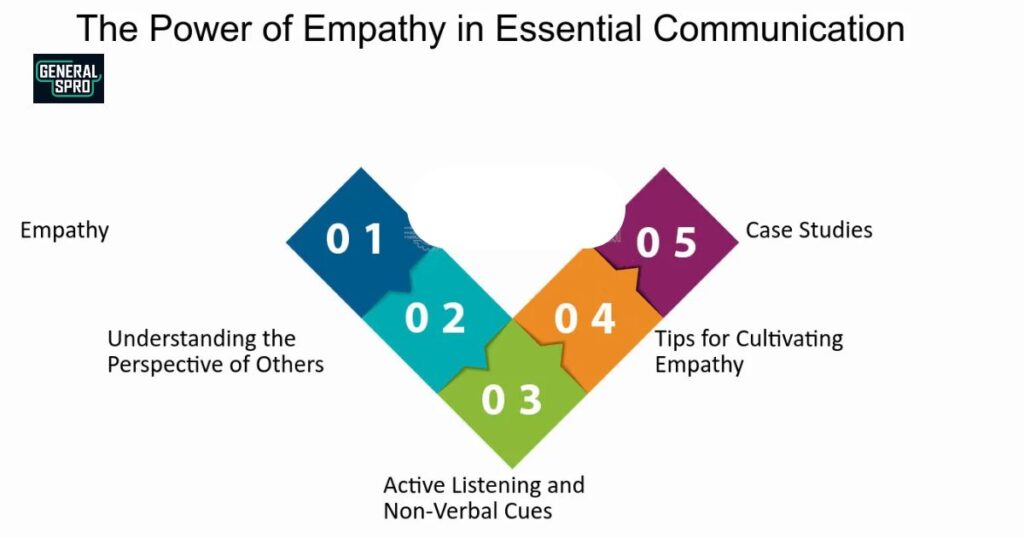In today’s interconnected world, knowing how to respond with genuine empathy and compassion when someone shares difficult news has become increasingly important.
While “sorry to hear that” is a common response, there are more meaningful ways to express sympathy and create deeper emotional connections.
This comprehensive guide explores alternative phrases that convey authentic concern and support during challenging times.
Understanding the Power of Empathetic Communication

When someone shares troubling news or difficult experiences, our immediate response can significantly impact their emotional well-being.
The phrase “sorry to hear that,” while well-intentioned, might sometimes feel inadequate or impersonal. Expressing empathy effectively requires a delicate balance of acknowledging struggles while offering support in a way that resonates with the person’s experience.
The Impact of Thoughtful Responses
In professional and personal settings, the way we respond to others’ difficulties can strengthen or weaken relationships. Research in interpersonal communication shows that genuine expressions of emotional understanding create stronger bonds and foster trust.
When we move beyond standard phrases like “sorry to hear” and choose more personalized responses, we demonstrate deeper genuine care and attention to others’ experiences.
10 Compassionate Alternatives to “Sorry to Hear That”
This phrase acknowledges the weight of someone’s situation without minimizing their experience. It validates their feelings while showing you recognize the challenge they’re facing.
For instance, when a colleague shares news about a family illness, this response demonstrates understanding of their difficult situation while maintaining professional boundaries.
2. “I can’t imagine how that feels”
This humble acknowledgment shows respect for the unique nature of their experience. It’s particularly effective when someone faces circumstances outside your personal experience, as it combines emotional connection with honesty about your limitations in fully understanding their situation.
3. “My heart goes out to you”
When expressing sorrow, this phrase conveys warmth and sincerity without overstepping boundaries. It’s especially appropriate when responding to news of loss or significant life changes, offering condolences while maintaining appropriate distance.
4. “I wish I had the right words, just know I care”
Sometimes, admitting our inability to find perfect words while expressing genuine concern creates a more authentic connection.
This response acknowledges the complexity of their situation while showing concern through honest communication.
5. “I’m here for you during this difficult time”

This practical expression of support lets people know they’re not alone while respecting their space to process emotions. It’s particularly effective in both professional and personal contexts, offering assistance without pressure.
6. “That sounds really challenging”
As a sorry to hear that synonym, this phrase validates their experience while maintaining appropriate emotional distance. It’s especially useful in professional settings where maintaining boundaries is important while still supporting friends or colleagues.
7. “I’m so saddened to hear this news”
When you need to express “so sorry to hear that” in a more refined way, this alternative conveys genuine emotion while keeping the focus on their situation. It works well in formal settings while still maintaining personal warmth.
8. “This must be so hard for you”
Another way to say sorry to hear that with more emotional depth, this phrase acknowledges the personal impact of their situation.
It shows understanding while validating feelings and creating space for them to share more if they choose.
9. “I’m here to support you in any way I can”
This practical approach to expressing empathy offers concrete support while allowing the other person to define what help they need. It’s particularly effective when you want to provide tangible assistance during a tough time.
10. “I’m thinking of you during this tough time”
For situations requiring an “i am sorry to hear that professional way“, this phrase strikes a balance between personal care and professional boundaries. It expresses ongoing concern without requiring immediate response or action.
When and How to Use These Alternatives

The effectiveness of these alternatives depends largely on context, relationship dynamics, and the specific situation. In professional settings, maintaining appropriate boundaries while showing support requires careful consideration.
For personal relationships, deeper expressions of empathy might be more appropriate.
Consider these factors when choosing your response:
- Your relationship with the person
- The severity of the situation
- The setting (professional vs. personal)
- Cultural considerations
- The person’s apparent emotional state
FAQ’s
Is it okay to just say “sorry to hear that”?
While “sorry to hear” isn’t inherently wrong, more personalized responses often create stronger connections. The key lies in delivering any response with genuine sincerity rather than focusing solely on word choice.
What does “Sorry to Hear That” mean?
This common phrase expresses acknowledgment of and sympathy for someone’s difficult situation.
However, expanding beyond this basic expression can lead to more meaningful interactions and stronger relationship building.
When should I use “Sorry to Hear That”?
This phrase works best in casual or brief interactions where deeper engagement isn’t possible or appropriate.
For more significant situations or closer relationships, consider using alternatives that demonstrate greater emotional investment.
Is “Sorry to Hear That” always appropriate?
While generally acceptable, some situations call for stronger expressions of support or more specific acknowledgments.
The level of formality and personal involvement should match the circumstances and relationship.
How can I respond if someone says “Sorry to Hear That” to me?
Acknowledging their expression of sympathy with a simple “thank you for your concern” or “I appreciate your support” maintains the flow of conversation while recognizing their attempt at showing care.
Are there alternatives to saying “Sorry to Hear That”?
As demonstrated throughout this article, numerous alternatives exist that can convey deeper empathy and support.
The key is choosing responses that feel authentic while maintaining appropriate boundaries.
Conclusion
Mastering the art of expressing sympathy and support represents a crucial interpersonal skill in both professional and personal contexts.
While “sorry to hear that” serves as a basic acknowledgement, expanding our repertoire of responses allows us to create more meaningful connections and provide better emotional support during difficult times.
Choose responses that align with your personality and relationship while showing genuine concern for others’ experiences. By incorporating these alternatives into your communication toolkit, you can build stronger relationships and provide more meaningful support during challenging times.
The most effective expressions of sympathy combine genuine emotion with appropriate boundaries, creating space for authentic connection while respecting personal and professional limitations.
As you practice these alternatives, focus on delivering them with sincerity and adapting them to specific situations and relationships.








